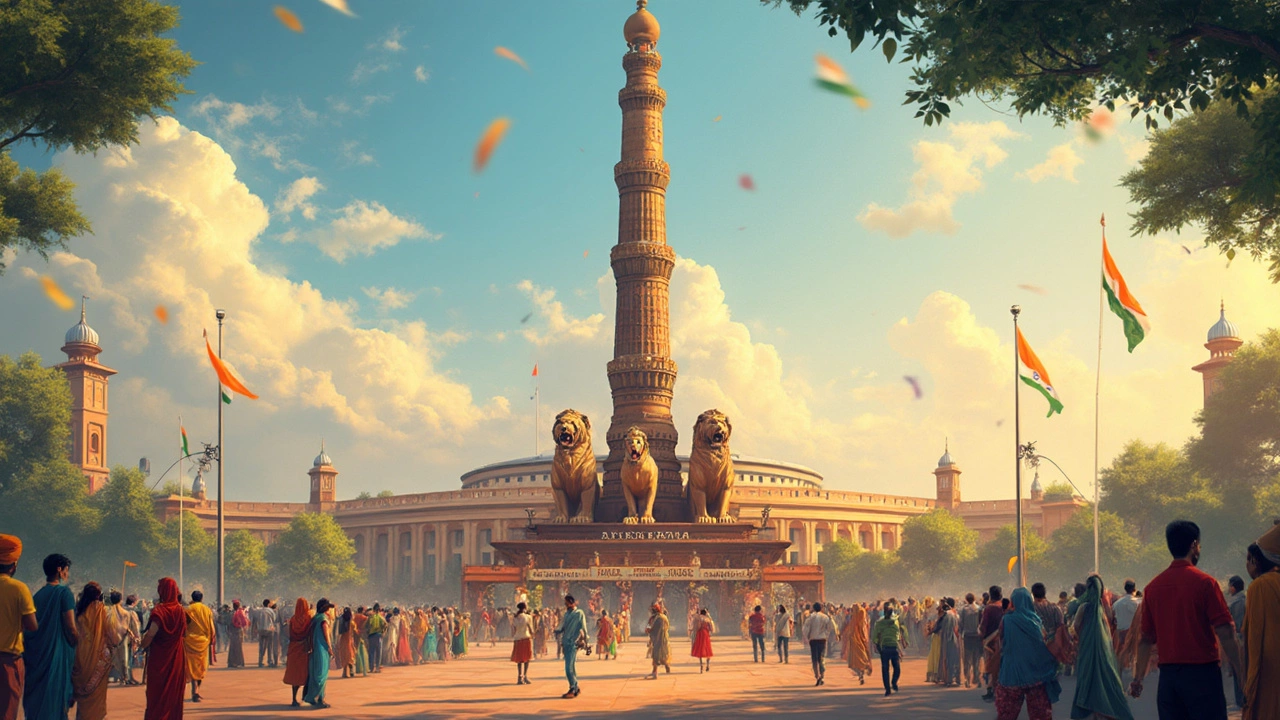Indian National Emblem – Meaning, History & Official Use
When talking about the Indian national emblem, the official seal that appears on passports, currency, and government documents. Also known as Lion Capital of Ashoka, it features four lions standing back‑to‑back, a dharma‑chakra below, and the motto “Satyameva Jayate.” The emblem reflects India’s ancient heritage and modern republic values in a single design.
The emblem encompasses several key symbols. First, the Lion Capital of Ashoka, which originated in Sarnath, Uttar Pradesh, around 250 BC. It represents power, courage, and confidence—qualities the nation wants to project. Below the lions sits the Ashoka Chakra, a 24‑spoke wheel taken from the Indian flag, symbolizing progress and the endless cycle of life. The national motto, taken from the ancient text *Mahâkâvya*, adds a moral dimension: truth always triumphs. Together these parts create a visual identity that requires strict guidelines for size, color, and placement, ensuring consistency across official stationery, official seals, and diplomatic communications.
How the Emblem Shapes Other National Symbols
Beyond the seal itself, the Indian flag uses the same Ashoka Chakra at its center, linking the flag and emblem in a shared visual language. The Indian Constitution references the emblem as a symbol of sovereignty, while the judiciary prints it on court judgments to assert authority. Even everyday items like banknotes and postage stamps carry the emblem, illustrating how a single design can influence diverse aspects of a nation’s identity. This interconnection shows that the emblem influences official documents, public perception, and international branding.
Understanding the Indian national emblem helps you make sense of why it appears on everything from a passport’s cover to a government‑issued press release. It also sets the stage for the varied articles below—whether you’re curious about how wealth distribution is reported, want to learn popular Indian phrases, or need guidance on the proper use of greetings like Namaste. All those pieces share a common thread: they reflect India’s rich cultural fabric, which the emblem proudly represents. Dive into the collection to see how tradition, modern life, and official symbolism intersect across topics.
